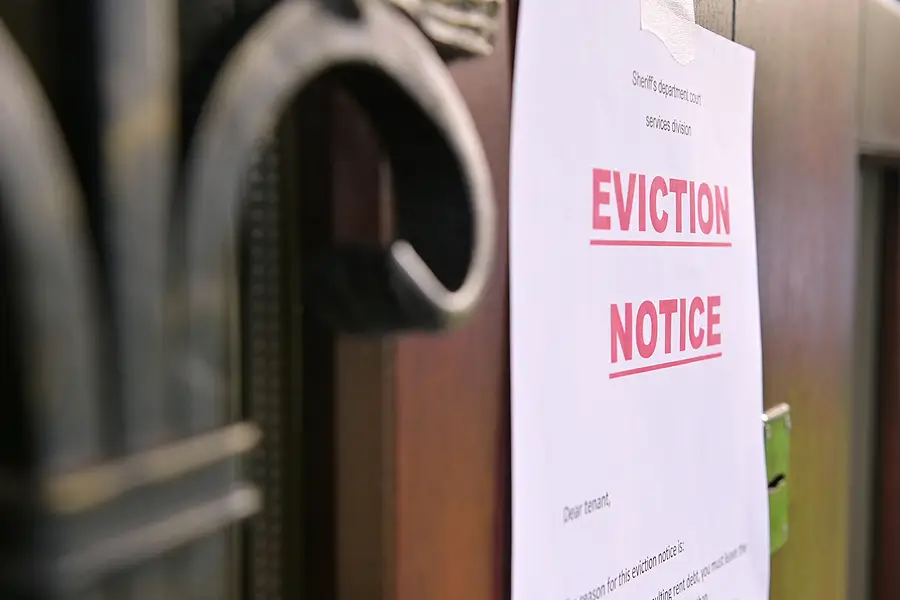Preserving a constructive landlord-tenant relationship is essential for effective rental property management. Nevertheless, when problems occur, landlords must adhere to the legal eviction procedures.
To evict a tenant, the landlord must follow proper legal steps and comply with local laws. A landlord files for eviction only after all other solutions fail, helping to preserve fairness while protecting their property.
This guide helps landlords and tenants understand the key steps involved in the eviction process in Harrisburg.
Step 1: Issuing an Eviction Notice
The eviction process typically begins when a tenant fails to pay monthly rent or violates a lease term. In Pennsylvania, landlords must serve a written eviction notice, often called a "notice to quit," which informs tenants that they are in violation of the lease or rental agreement.
The notice period depends on the violation. For instance, if the tenant fails to pay rent, a 10-day notice is usually required. This written notice must specify the reason for eviction, such as unpaid rent, illegal activity, or other lease violations.
Step 2: Filing an Eviction Lawsuit
If the tenant does not resolve the issue within the notice period, the landlord can initiate formal eviction proceedings by filing an eviction lawsuit in the local magisterial district court.
In Pennsylvania, this process involves costs, including court filing fees. The court will then schedule an eviction hearing before a magisterial district judge, during which both parties can present their cases.
Landlords should bring relevant court documents like the written lease agreement, rental payment records, and a copy of the eviction notice.
Step 3: Attending the Eviction Hearing
During the court hearing, both the landlord and tenant will present their arguments. The landlord must prove that the tenant violated the rental agreement, such as failing to pay rent or engaging in illegal activities in the tenant’s rental unit.
The tenant, on the other hand, may defend themselves, arguing improper notice or raising other concerns like tenant rights under the Fair Housing Act.
If the judge's decision favors the landlord, they’ll issue an order for possession, granting the landlord the right to evict the tenant. When the landlord wins, the tenant must vacate the property within the timeframe specified by the court.
Step 4: Post-Hearing Procedures and Eviction
After the judge's decision favors the landlord, the tenant is typically given a specific period, usually no more than 10 days, to vacate the rental unit. If the tenant does not leave voluntarily, the landlord must follow the legal action outlined by the court.
Only a sheriff or law enforcement can physically remove a tenant; self-help actions like changing locks or removing the tenant’s personal property are illegal. Following the proper legal procedures ensures that the eviction is carried out lawfully.
Legal and Financial Considerations for Landlords
Landlords should ensure they meet notice requirements throughout the Pennsylvania eviction process and provide proper documents when necessary. Landlords need to follow the court system's rules, file the correct paperwork, and abide by the court's procedures.
Eviction is a legal process that cannot be rushed, and improper action can result in legal penalties or delays. Knowing how much notice is required for different violations and keeping detailed records, such as lease agreements and payment records, will help streamline the process and increase the chances of a favorable outcome.
Secure Your Property Today
Understanding Pennsylvania eviction laws and legal requirements is vital for both landlords and tenants. The eviction process can proceed smoothly and efficiently by adhering to the correct legal procedures, providing proper notice, and being prepared for the court hearing.
Following the law protects the rights of both parties and ensures that the eviction is handled fairly within the court system.
Need help navigating the eviction process in Pennsylvania? Here at Hometown Property Management, we handle everything—from lease agreements to legal evictions—ensuring compliance with court orders.
Contact us today for professional support in protecting your rental property!


